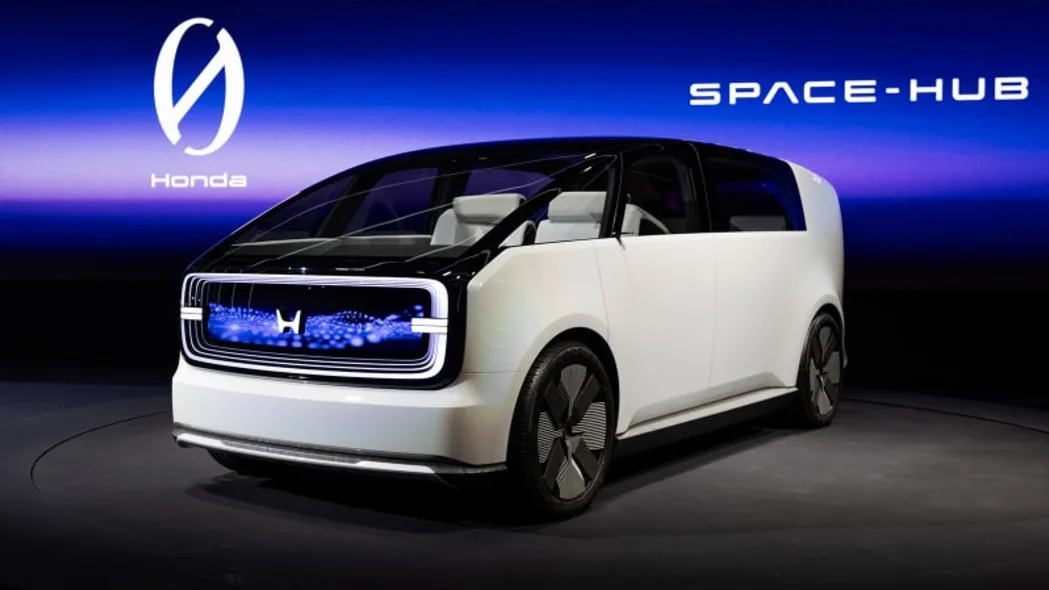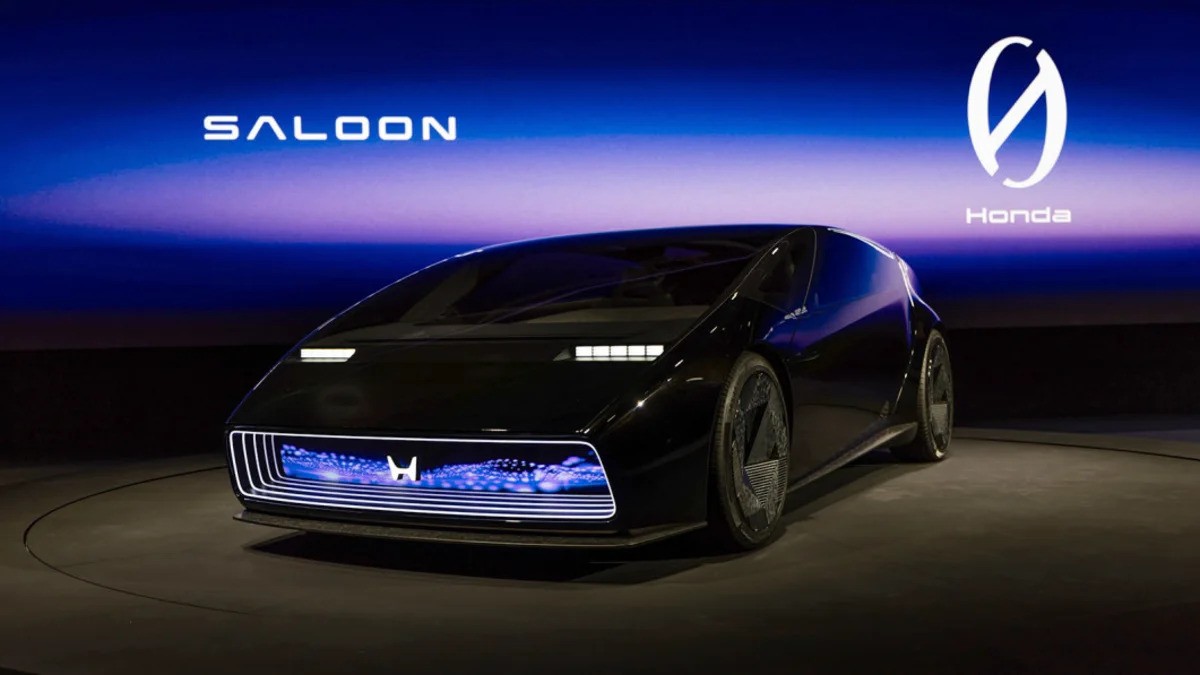LAS VEGAS — After Honda announced its new all-electric 0 Series at CES this week, suffice it to say we had questions. Fortunately for us, Honda CEO Toshihiro Mibe was there to share the news in person. Along with other selected media, we had the opportunity to ask anything we liked about the forthcoming platform and Honda's plans for its rollout here in the United States starting in 2026. Here are five key things we learned about this new platform and the cars it will underpin.
We may see one before the Saloon arrives in 2026
While Honda has promised it will launch a production model based on the 'Saloon' concept in North America in 2026, another 0 Series vehicle may actually arrive at the same time — or even sooner. What form that may take is anybody's guess, as Mibe remained shy about the details. For now, treat 2026 as the hard deadline and rule nothing out.
It will expand to new segments
At launch, 0 Series will be a "mid-large" platform, which we can take to mean midsize for practical purposes. This would support cars of equivalent size to Honda's existing Accord and Passport along with the Odyssey minivan (take a close look at that Space Hub concept below). Honda plans to offer 0 Series models with different footprints later. A small-car platform suitable for subcompact, midcompact and compact offerings (think Honda City, HR-V, Civic, CR-V, etc.) will follow later, as will an even larger platform, which we would expect to be utilized for a Pilot equivalent. Though the existing ICE-powered Pilot and its other sibling, the Ridgeline are midsizers riding on the same platform as the aforementioned Passport, these are as big as Honda's trucks and crossovers get. If the mid-large platform could accommodate such offerings, it stands to reason that a larger one wouldn't be necessary.

It has not damaged Honda's relationship with GM
Mibe dismissed any perceived rift between Honda and General Motors resulting from the dissolution of their agreement to build a line of small cars on GM's Ultium EV platform. The companies parted ways over a desire to approach their long-term electrification strategies differently, not over any technological limitations or constraints provided by the Ultium platform itself, Mibe said, and the two companies are still working together to develop autonomous technology utilizing elements of GM's Cruise division.
"Our relationship is great with GM," Mibe said.
It already has an expiration date
While Mibe believes the 0 Series will evolve substantially over the life of the platform, Honda has already defined its lifecycle. It is expected to shoulder Honda's EV efforts from 2026 until 2031 or 2032, at which time it will be phased out. In favor of what? Mibe wouldn't say, but he did point out that the automotive industry is still collectively waiting for the key generational breakthrough in battery tech that will enable truly affordable EVs. Whether that ends up being widespread availability of solid-state batteries or something else entirely remains to be seen, but it still remains firmly in the future for the time being.
In any event, the 0 Series will turn into a pumpkin before the middle of the next decade. Planned obsolescence or just another inevitability of progress? You decide.
Acura will do its own thing
The 0 Series as it has been presented thus far is limited to the Honda brand. While the company has plans for Acura, they won't merely be 0 Series retreads, Mibe told us. Given the realities of modern automotive manufacturing, we take that to mean that Acura's platform will get its own name and its vehicles will get entirely unique bodywork. Until Honda shares more details, we'll just have to wait and see.
Related video:


Sign in to post
Please sign in to leave a comment.
Continue